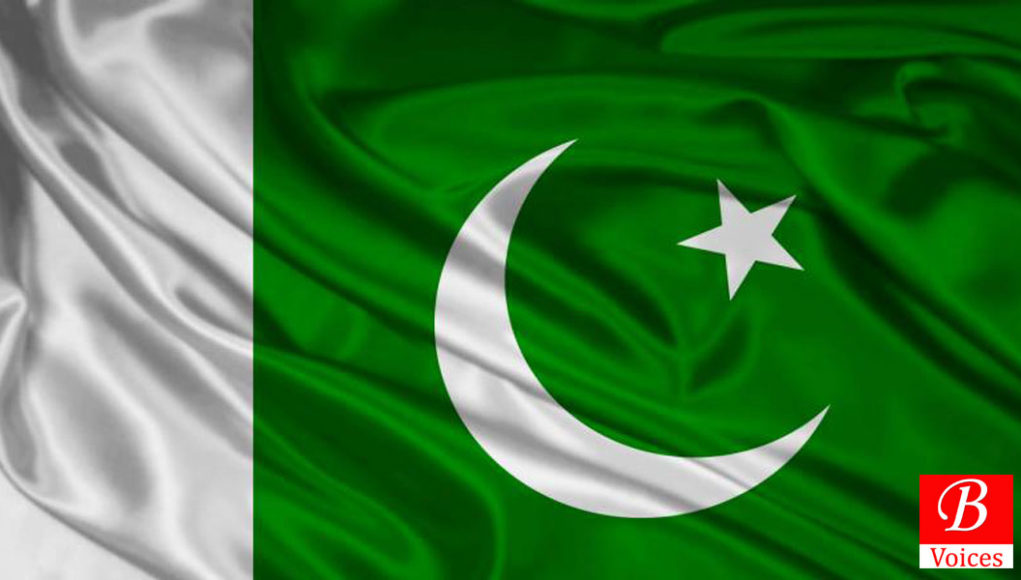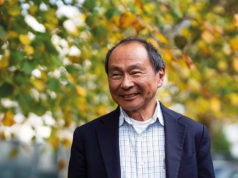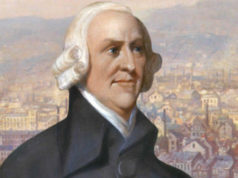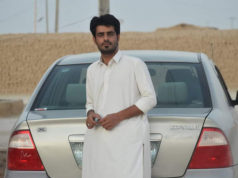Aurangzaib Uthwaal
Democracy has always remained a question mark in Pakistan. Asif Ali Zardari was only the democratically elected president in the history of Pakistan who completed his five year tenure. Military interventions, weak political parties, politics of religion, ethnic politics, colonial legacy, partial accountability and constitutional crises are some major factors due to which democracy could not strengthen.
Military interventions:
When Pakistan came into being on august 14, 1947 Quaid-i-Azam Muhammad Ali Jinnah unequivocally said that military had nothing to do with the politics. He said that military had to guard our borders. But soon after the death of Quaid-i-Azam Muhammad Ali Jinnah, military took an active part in politics.
Ayub Khan was appointed as the defense minister of Pakistan and he later on imposed martial law in 1958. After the ten years dictatorial regime of Ayub Khan, another military General Yahya Khan came into power. He ruled until 1971 when Pakistan was bashed into two parts. In 1977, General Muhammad Zia-ul-Haq suspended the constitution and dissolved assemblies and came into power. He remained president until 1988 when he died in the tragic plane crash incident. General Pervaiz Musharif is the fourth military dictator who came into power in 1999 in a dramatic way. Political parties remained all but banned in all the dictatorial regimes. Thus in the seventy years in the history of Pakistan military remained in power more than thirty years and consequently democracy could not flourish.
Weak Political Parties:
Political parties remained fragile and redundant due to massive corruption and inefficiency of politicians. From 1948 to 1958 eight governments were changed.
Moreover, political parties remained undemocratic in nature. Parties have been overwhelmed by land lords who did not have much political awareness. Furthermore elections were rigged and accumulation of power remained the sole raison deter of the political parties. Thus weak political parties could not strengthen democracy.
Politics of Religion:
Few rulers in order to legitimize their power used religion as a tool. For instance Zulfiqar Ali Bhutto used Islamic socialism to gain popular support but it proved to be toxic cock tail for him when his policies of nationalization were crushed in Balochistan and separatist movements started, Bhutto used the force to eradicate the separatist movement which make the quagmire worse.
Similarly General Muhammad Zia-ul-Haq also used Islam for legitimization of power. Zia was in favor of Islamic nationalism. According to him “where there is ethnicity and division Islam cannot blossom there.” He used Sunni version of Islam but his results were horrendous. Sunni and Shia began to call each other infidels.
When Zia imposed Shria law women rights were undermined, especially in Hudood ordinance. Women action forum was created against Zia and it lambasted his policies. Moreover democratic rights of minorities were snatched. After Zia regime Benazir Bhutto came into power and Islami Jamhuri Ittihaad was created against her. Politics of religion remained part and parcel of every ruler during constitutional formation. Islam was not used in the politics of Pakistan after the formation but it was also being used in pre independence era. Quaid-i-Azam and Muslim League used religion as a tool to get separate homeland. Mullahs did not take part in the independent struggle because they thought that Muslim League is going to make a secular Pakistan. However elite class and middle class took part in the independent struggle because of socio-political and economic reasons. According to clergy there was a massive dichotomy between democracy and Islamic way of governance which was later explained by Abu-ul-ala-moudodi. According to him legislation belongs to God while in democracy it is the privilege of elected representatives of masses. This hatchat between democracy and Islamic system persisted after the independence of Pakistan. Delay in the constitution-making was also because of this conundrum.
Politics of Ethnicity:
Ethnic politics caused much chaos duo to which East Pakistan was lost. However even after the creation of Bangladesh, politicians could not eschew themselves from raising the slogan of “Jaag Punjabi Jaag” (wake up Punjabi), Azeem Balochistan (Grater Balochistan), Sindhu Daesh, Saraikistan and Pakhtoonistan. Politics of ethnicity created much trouble and nation building process remained sluggish.
Colonial Legacy:
Colonial legacy is another important factor which impeded democracy. When Britishers came to subcontinent they made bureaucracy and military two powerful institutions. These two institutions remained powerful even after the formation of Pakistan. Military and bureaucracy covertly remained active in politics. On the other hand political parties were weak because political parties were discouraged during colonial era so remained puppet to military and bureaucracy. Thus institutional imbalance could not reinvigorate democracy.
Furthermore geography of Pakistan was unsymmetrical. This was because of a colonial legacy which was triggered by Red Cliffe. Lord Mountbatten and Indian leaders hatched a conspiracy to make a delegate Pakistan which could coddle itself with India later on. Few Muslim majority states were not given to Pakistan i.e. Kashmir. Moreover Bangladesh was away from Pakistan and there was no land route between them. Thus Pakistan was scattered which compelled leaders to make it a security state.
Lack of Accountability and fluctuating judiciary:
Accountability has remained witch hunt. Leaders were overthrown because of corruption charges but no one could force them to pay back stashed money to the nation. Ayub Khan promulgated Elective Body Disqualification Order (EBDO) to which those convicted in corruption charges had to be disqualified. In most of the causes judiciary remained subservient to the politicians. For instance when National Awami Party was banned in 1973 by Zulfiqar Ali Bhutto court endorsed it. Special courts were introduced in 1973 according to Pakistan defense rule and judiciary accepted it.
Justice Muhammad Munir also supported government act in 1953 during Ahmidi’s movements when he was Chief Justice of Lahore High Court. During Bhutto era age of retirement of judges was increased from 60 to 65. During Zia era judiciary again remained weak. Nusrat Bhutto filed a case against illegal dissolution of assembly but court validated the actions of Zia ul Haq. In Raza Kasuri case Bhutto was sentenced to death which was later admitted by judiciary that they were wrong and it was judicial murder in the tarnished history of Pakistan. Similarly Musharraf formed NAB during his regime which mostly served his own purposes. Thus when accountability became political victimization justice cannot be delivered and ultimately democracy cannot be strengthened.
Constitutional Confusion:
According to article 58-2B president has the authority to bring prime minister to book. It was incessantly used by presidents who had more power than the prime minister. For example during 1990s Benizeer Bhutto and Nawaz Sharif’s governments were toppled by president Ghulam Ishaq Khan and Farooq Leghari. However Nawaz Sharif during his second regime abolished 58-2B by thirteenth amendment.
Moreover, during Nawaz Sharif third regime article 62 and 63 were used to sack him. Thus controversial or convoluted clauses of the constitution adversely effected the democracy. From 1947 to 1956 legislative assembly could enact 160 laws but governor generals enacted 376. Thus the weak legislative system which created constitutional confusion also suffocated democracy.
The writer is a Student of BS in International relations at Quaid-e-Azam University Islamabad.
Plagiarism Note: Did u find any plagiarism in any article of Balochistan Voices? Please report it to the editor by sending an email at [email protected]
Disclaimer: Views expressed in this article are those of the author and Balochistan Voices not necessarily agrees with them.
Share your comments!








